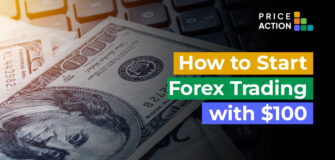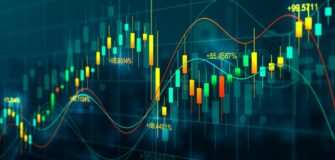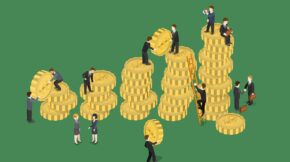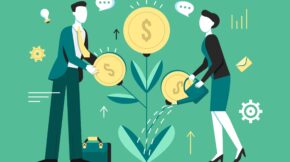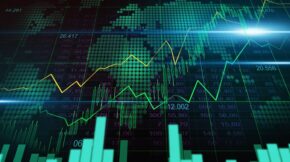Trading psychology
Share
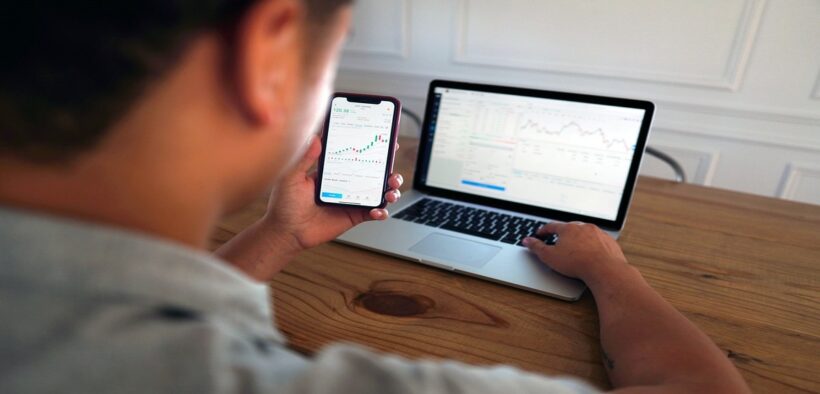
Trading psychology is a critical phase of achieving success in the forex market. It deals with the emotional condition of a trader when entering and closing trades, looking for potential trade opportunities, or carrying out other trading-related tasks. Usually, most traders experience losses because of negative emotions that hamper their rational decision-making processes and cause them to make improperly planned trade decisions. We, as humans, are innately emotional creatures, something which dictates our judgments. We tend to elevate our egos when making decisions or make outbursts when we think things are not working right. Actually, these emotions are not wrong, how we react to them is what matters, especially when we are trading currencies. If emotions get the best of you and you fail to control them, illogical decision-making crops up. Eventually, even if you are an experienced and good trader, losses start accruing even in trades that could have been profitable. Some traders think that fewer emotions could solve their problems. However, that’s impossible; if you are still a human being. If you use the feelings well, they may assist in accelerating your trading success. Trading psychology can make the difference between a successful trader and a loser trader. Having a stable mental condition is an essential element you need to become a consistently profitable trader. So, how can you control your emotions and ensure they work for you and not against you?**Here are the four main psychological obstacles to be a successful trader.
- Fear
- Greed
- Revenge
- Euphoria
1. Fear in Trading Psychology:

Fear is a very normal reaction we display to threats that could cause us harm. Being fearful is okay for a human. In fact, emotion is regarded to be crucial to our survival. Without fear, it will be very much difficult to notice danger and escape from it. However, in forex trading, fear is detrimental when we allow the perceived loss-making threats to cause us to make irrational and unwanted decisions. Instead of motivating us to place trades without worries, fear draws us back from making trades, convincing us that we are not in the right way. This fear of being wrong hampers the power of our analysis and the amount of time we’ve taken looking for good setups and points us to the negative side of the market. Another type of fear is the fear of missing good trades. This is called “Fear of Missing Out”. This fear often makes us enter trades at any price, without waiting for the perfect trade setups. A fearful trader who does not want to miss profitable opportunities frequently disregards a rational approach to trading and allows excitement to overrule their decisions. The last type of fear, which is even more dangerous, is that of loss. The fear of loss causes a psychological scare in our minds and send us warnings before making trade decisions. For example, let’s say you have a long-running position on the EUR/USD currency pair, and bad news comes regarding the state of the Eurozone economy, what would you do? In this situation, most traders will feel afraid, overreact, and quickly close the trade without a second thought. Even though they may be taking action to avoid losses, fear usually drives such decisions and could lead to missing out on the possible gains.Fear in forex trading usually leads to the wrong path: as fear pushes traders to make unwanted decisions, their trading accounts get depleted slowly by slowly—until they receive margin calls.
2. Greed in Trading Psychology:
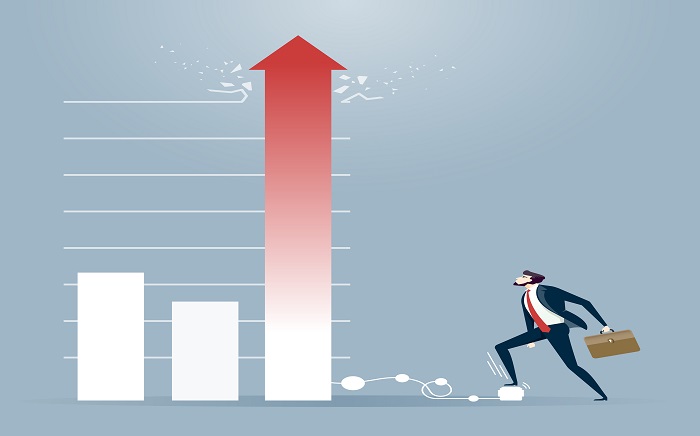
Greed is even more dangerous than fear. It drives you to want more profits when trading forex. Let’s put it straight: every forex trader wants to get good returns from their efforts. However, this yearning becomes unproductive, even detrimental, when it’s too powerful. It’s right to realize financial success in forex trading. But, if these greedy desires suffocate your common sense and drive your trading decisions, then there’s everything wrong with them. There’s a very common saying among financial traders that “when bulls and bears are making profits, pigs are being slaughtered”. The pig is a very greedy animal, and the analogy is useful in the trading business since it shows that the market does not respect those greedy pigs— they lose their money. As such, the emotion of greed is even more harmful than fear. Fear can keep away you from making trade decisions or make you exit too early. Conversely, greed compels you to push the buy or the sell button in a manner that’s far too risky. That’s why the emotion of greed can be much more destructive than simple fear. Since greed pushes us to act irrationally, it’s a very dangerous emotion. Just like drinking alcohol, greed can prompt you to behave foolishly when it has intoxicated your system. If greed cripples your trading strategy, then you’re drunk with it, and you’ll soon wipe out your whole balance. For example, traders intoxicated with greed usually fail to exit their winning positions because they think the market will obey them always. Greedy traders also open multiple positions whenever the market has moved according to their expectations. Other harmful behaviors of greedy traders include over-leveraging, quickly jumping into trades, and over-trading. There is a famous quote from Warren Buffett, “Be fearful when everyone is greedy, be greedy when everyone is fearful.”
3. Revenge in Trading Psychology:

Revenge is also a deleterious emotion that obstructs trading success. Revenge trading usually takes place when traders try to make more risky and aggressive trades, especially after experiencing losses. Whereas the primary intention of revenge trades is to try to win back the losses, it often results in more losses than initially intended. Revenge traders often blame the market for their losses and end up placing trades without any perfect analysis. Revenge trading is harmful because for 3 main reasons. First, since it’s usually not planned well, it leads you into making hurried trades that are less likely to be profitable. If you are involved in revenge trading, you will be gambling and not trading. You will speedily place trades without any planning or top-class analysis. Secondly, because you become desperate to recover the losses, revenge trading forces you to open trades with larger position sizes. You will ignore the risk-reward management part of your trading plan just because you want to win back the losses quickly. Lastly, it is an emotional trading habit that’s driven by the wrong motives which are not good for your upcoming trading future. It changes your focus from exact trading decisions to emotion-driven trading choices. Your emotions cloud your thoughts and make you throw discipline and sound mind out of the window, which bleeds your account—pip by pip. For example, you can enter a buy order on EUR/USD, but you end up losing 50 pips. Frustrated, you decided to double your position size on the next trade so that you can recover your initial loss. However, the trade goes to the opposite of your expectations again, causing further damage to the trading account. It will be easy to open an even bigger position now because the market “owes” you money and you want to take “your” money back.
4. Euphoria in Trading Psychology:
Last, of all, euphoria can also cripple your trading success. It is the feeling of excitement that is realized after experiencing several big wins in the forex market. Your euphoric state convinces you that you can predict the movement of currency pairs perfectly and your analyses are faultless. While it is normal to feel excited after winning a trade, overconfidence can result in problems. For example, because you placed a buy order on EUR/USD and made a big win, this doesn’t mean that another trade will automatically result in a win. The market will not work like your analysis all the time. Euphoria often leads to a slippery slope of trading faults and losses. After a series of successful trades, a trader can become very overconfident and start placing trades without careful and top class analysis of the ever-changing market conditions. Overconfidence can also cause you to risk too much of your capital, falsely believe in your analysis, or forget about your risk management. Having a party after each successful trade is an emotional motive that can increase your trading flaws and it is completely your own fault.



